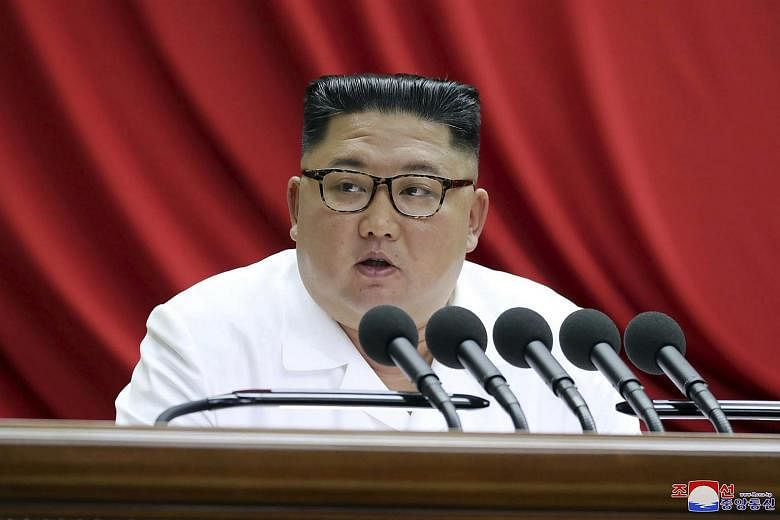NEW DELHI (THE STATESMAN/ASIA NEWS NETWORK) - North Korean President, Kim Jong Un, emitted a fairly awesome signal as 2020 unfolded.
Chiefly, North Korea will lift its moratorium on nuclear and intercontinental ballistic missiles, in effect arrogating to itself a free hand in matters nuclear.
His New Year message could scarcely have been more unnerving for the feisty US President Donald Trump.
Pyongyang's signal of intent resonates in the echo chambers of the comity of nations.
After a rather unusually subdued spell over the past few months, Mr Kim went ballistic in the wake of the US administration's refusal to relax the crippling sanctions, not to forget the two infructuous summits with the US President in Singapore and Hanoi.
He upped the ante with Tuesday's (Dec 31) declaration that the test ban, which President Kim had agreed to in talks with President Trump, was no longer needed, an assertion that has been couched in the caveat that the North would introduce what it calls a "new strategic weapon" in the near future.
Altogether, his robust message in the season of jollity might effect a major shift in game theory, if intent fructifies in action.
In response to Mr Kim's belligerence, President Trump's reaction has been uncharacteristically feeble. He is remarkably diplomatic when he claims to have a "good relationship" with Kim.
"He did sign a contract," he said. "He did sign an agreement talking about denuclearisation. That was done in Singapore, and I think he's a man of his word, so we're going to find out."
The short point must be that the North Korean President might well keep his word, as spelt out on New Year's eve. He has made it pretty obvious that a "good relationship" with Washington will have to be embedded in terms set by Pyongyang.
North Korea has previously fired missiles capable of reaching the entire US mainland and has carried out six nuclear tests.
A self-imposed ban has been at the centre of the nuclear diplomacy between Pyongyang and Washington over the past two years. This has involved three meetings between Mr Trump and Mr Kim, but little tangible progress.
Indeed, the latter was at his abrasive worst on New Year's eve, even accusing the US of making "gangster-like demands" during the talks process, notably conducting joint military drills with South Korea, adopting cutting edge weapons, and imposing sanctions.
It would be presumptuous to aver in the manner of the Centre for the National Interest in Washington that "Kim Jong Un is playing a dangerous game of geopolitical chicken."
Suffice it to register that an intercontinental ballistic missile (ICBM) launch would frustrate, if not alienate, China, the North's key diplomatic ally and provider of trade and aid, which always stresses stability in a region it regards as its backyard.
In the wider canvas, the two Koreas, China and the United States of America are in a heady brew.
Kim Jong Un will have to choose between peace and prosperity over conflict and war.
The Statesman is a member of The Straits Times media partner Asia News Network, an alliance of 24 news media entities.

